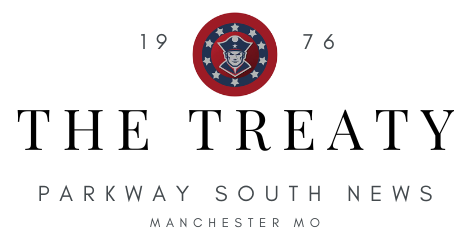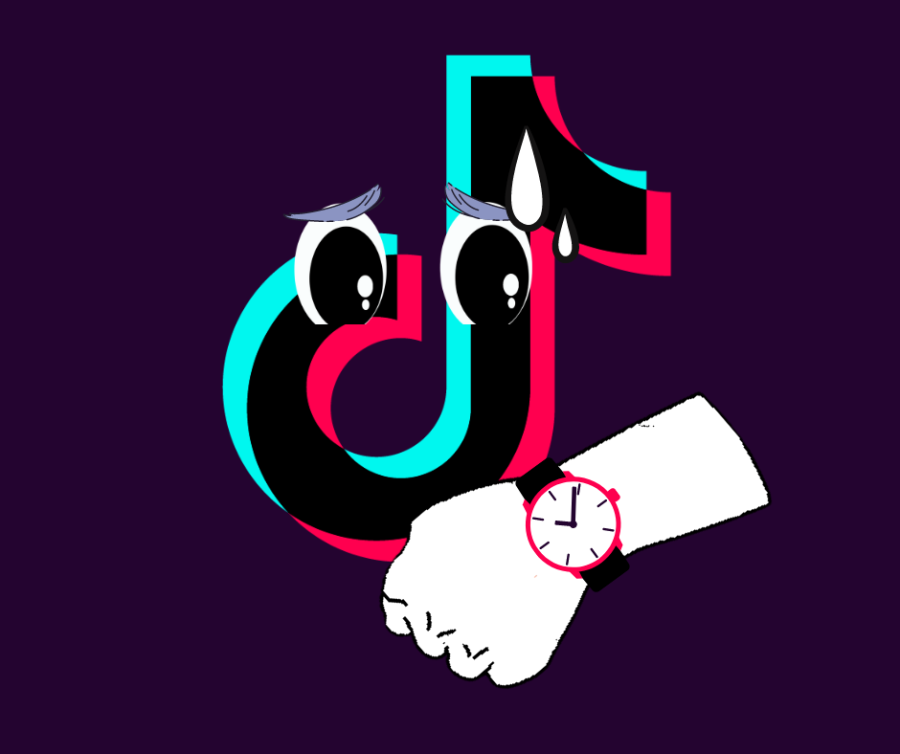Tick tock, TikTok
Despite its popularity, TikTok is at risk of getting banned
TikTok is an app that teachers hate, students love, and the government loves trying to ban.
TikTok continues to be under the lens of the U.S. government and is at risk of being banned in some states.
In fact, starting January 1, 2024, Montana will become the first state TikTok from the app stores, fining any app store that hosts the app at rates of $10,000 per day.
Montana’s ban was expected, and as more and more states challenge TikTok, many already banning them on government phones, the chance of the app being banned seem more and more likely. According to a Wikipedia article about the restrictions on TikTok, “ As of April 2023, the app has been banned for use by federal employees and banned for use by state employees in 34 (out of 50) states.”
Users of the app have been voicing their opinions, and although many take the concern seriously, some people at South see the chances of the app as being banned as unlikely.
“Like, it’s going to be fine. I really do think it’s gonna be fine. I don’t think they’re going to delete it,” said Ceramics teacher Stacey Larson.
One of the main reasons a TikTok ban is being proposed in many places is because of privacy. After recent events, like when a Chinese spy balloon was hovering over the U.S., and now more than ever the government and other U.S. citizens are concerned about countries like China spying on the country and collecting user data. Privacy is a legitimate concern. The Government is concerned that TikTok may be stealing information, and they believe the information could be used by China to influence America, especially politically.
“I think everyone is stressed out about social media, because a lot of people are just worried about their own information,” said freshman Tanner Roath.
However, there has been many scandals with American-owned sites and apps, such as Facebook with it’s information scandal back in 2018, where it was revealed that Facebook had been giving data to third-party companies at the time.
“I think it’s no more [of a threat] than any other app…” said Morgan Lips, senior. “…Nothing is private today anyways.”
With the proposed ban of this app, many people not only at South but everywhere have begun to question the effects of banning TikTok.
When Montana passed its law to take the app off of the app stores next year, a group of TikTok users sued the state, claiming that it would be a violation of their First Amendment right to free speech.
Around the same time, Montana was sued for violation of the First Amendment by TikTok itself.
Many people who use the app say the same thing. TikTok is used for many purposes, and one of those purposes is news. Many newspapers even have TikTok accounts, including the Washington Post, the St. Louis Post-Dispatch, and even South High.
Not only is the app used for news, but also to connect communities and build connections. Larson also got the app for this reason, saying “I got [the app] to connect with students at first because I knew it was popular. So I wanted to know what that was about and have something to relate to with them.”
An argument made against many social media apps is that they can easily become addictive, which is true, according to senior Avery White.
“It wastes a lot of my time,” White said. .
It has been proven countless times that social media apps like Instagram, Twitter, TikTok, and many other have become addictive and people waste hours of their day scrolling through these apps.
Although this is the case, many companies are jumping on the bandwagon and creating accounts on these platforms. Not only larger companies, but the small business owners use it to promote their brands, as well as influencers. Influencer jobs and social media managers are becoming more and more common, and both businesses and consumers are having to adapt.
Like many other social media platforms, they are social apps. Thousands of people use TikTok everyday. It’s easier to go viral than on some other apps and is easily curated to the user’s liking with the use of the “for you” page and other features.
Because it’s easy to go viral, TikTok has also helped many small business owners who need to make a living.
“I think that there is a huge community that relies on TikTok… Like ceramic artists I follow on TikTok use that to get customers.” said Larson. “So that would be detrimental.”
If that app got banned, potentially small businesses could lose customers or it could make it harder for them to improve their reach.
For now, the ban on TikTok is gray legally, because everytime a state pushes for a ban the app pushes back. As events unfold in the future, things may change. For now, TikTok seems safe.












